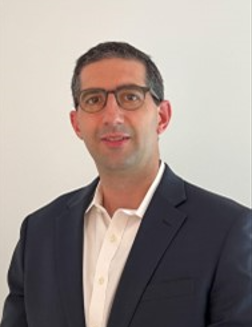Dr Zachary Solomon: Best Practices After Cardiac Surgery
Dr Zachary Solomon: Best Practices After Cardiac Surgery
Blog Article

In recent ages, adult cardiac surgery has skilled remarkable breakthroughs, driven by cutting-edge technologies, refined medical methods, and a further understanding of human cardiac anatomy and pathology. These advances have somewhat improved individual outcomes, paid off recovery instances, and widened the possibilities for managing a lot of cardiac conditions. In this post, we'll take a sooner search at some of the most impactful advancements in the field of adult cardiac surgery based on Dr Zachary Solomon Philadelphia.
Minimally Invasive Surgery
Historically, cardiac surgery required large incisions, like a sternotomy (where the chest is exposed via a straight incision). Nevertheless, minimally intrusive cardiac operations (MICS) have developed that landscape. Applying smaller incisions, endoscopic cameras, and specific devices, surgeons may now conduct complex techniques with less stress to the patient.
Robotic-Assisted Surgery
Robotic-assisted surgery is yet another amazing advancement. Surgeons use automatic systems to gain precision and get a grip on that could be impossible with the individual hand alone. These robots are designed with little tools and high-definition 3D cameras, providing unmatched vision and dexterity.
Transcatheter Aortic Valve Alternative (TAVR)
TAVR has changed the management of aortic stenosis, specially in people considered high-risk for open-heart surgery. Throughout a TAVR procedure, a prosthetic valve is placed using a catheter often through the femoral artery and started within the diseased aortic valve.
Advanced Imaging Techniques
The development of imaging modalities has empowered cardiac surgeons with exceptional preoperative and intraoperative visualization capabilities. Technologies such as for example 3D echocardiography, Cardiac MRI, and CT angiography allow accurate preparing and performance of operative interventions.
Gene Therapy and Regenerative Medicine
While still in the experimental phase, gene therapy and regenerative medication hold possible to transform cardiac surgery in the future. Researchers are analyzing ways to repair center muscle applying base cells and gene-editing technologies.
Conclusion
Breakthroughs in person cardiac surgery by which Dr Zachary Solomon is section of have significantly increased how heart conditions are handled, giving people less intrusive options, faster recovery occasions, and greater outcomes. As technology and medical research continue steadily to improve, the long run keeps much more promise for innovations that could change the landscape of cardiac care permanently as Dr Zachary Solomon would say. Whether through minimally unpleasant methods, automatic aid, sophisticated imaging, or amazing research in gene therapy and regenerative medicine, the field of cardiac surgery lies for a constantly evolving and increasing trajectory. Report this page